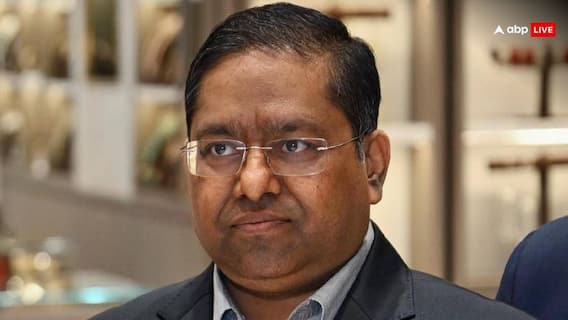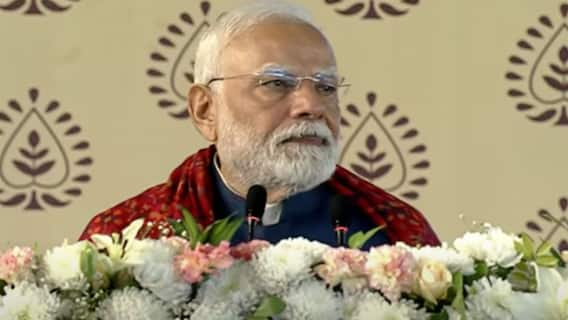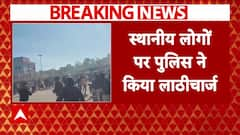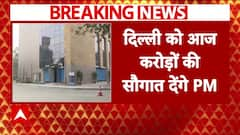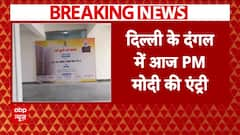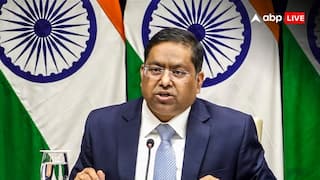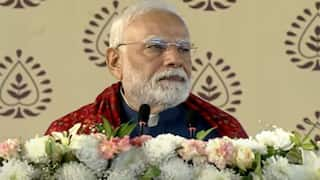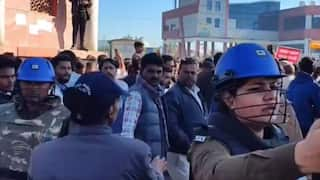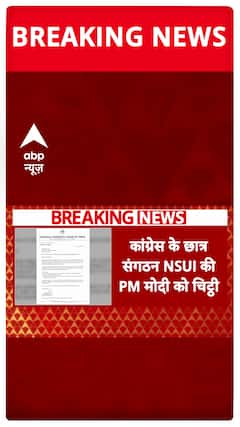Pakistan Political Crisis: Here Is A Complete Timeline Of Events Till Imran Khan's Ouster As PM
In the 342-member House, as many as 174 members voted in favour of the motion against the Imran Khan-led government while members of the ruling PTI party remained absent during the voting.

New Delhi: In a midnight conundrum in Pakistan National Assembly in the early hours of Sunday, Imran Khan was ousted as the Prime Minister of Pakistan despite several attempts to stall the voting by his party, Pakistan Tehreek-e-Insaf (PTI) all through the day.
In the 342-member House, as many as 174 members voted in favour of the motion against the Imran Khan-led government while members of the ruling PTI party remained absent during the voting.
With this new development in national politics of Pakistan, Imran Khan has become the first prime minister in the country to be ousted through a no-confidence motion which was being planned by the Opposition for months. By the end of the year 2021, Pakistan Peoples Party (PPP) persuaded Pakistan Muslim League Nawz (PML-N) chief Nawaz Sharif to move a no-confidence motion against then Prime Minister Imran Khan, reported news agency ANI via Geo TV.
Here is a full timeline of events that unfolded over the course of time since then.
November 28, 2021: PPP senior leader Khurshid Shah hinted towards an in-house change in the Parliament saying that the Opposition would have enough numbers to oust Imran Khan.
December 24, 2021: Senior leader from PML-N, Ayaz Sadiq also indicated an in-house modification by the Opposition.
January 11, 2022: Khwaja Asif, another leader of the PML-N said that the government has lost majority and that an in-house change will be made.
January 18, 2022: PPP chief Bilawal Bhutto Zardari said that a no-confidence motion against the Senate chairman would not be sufficient to oust the government as the Opposition wants to send the PM home.
January 21: Ayaz Sadiq said that the Opposition was ready for a no-confidence motion against the PM, the time for which will be decided later.
February 7: The two main Opposition parties, PPP and PML-N officially discussed a no-trust motion against the PM.
February 8: Shehabz Sharif presents the option of a no-confidence motion to Muttahida Qaumi Movement - Pakistan (MQM-P). Amir Khan, MQM-P chief says that he will furnish the request before the party's coordination committee.
February 11: Pakistan Democratic Movement (PDM) supremo Maulana Fazlur Rehman announces to introduce no-confidence motion, on behalf of the Opposition, against the PM. Meanwhile the ruling PTI challenged the Opposition to bring the motion and did not take the threat seriously.
March 8: Opposition tables the no-confidence motion.
March 12: Cracks in government’s coalition starts becoming visible as disgruntled PTI leader Aleem Khan discusses no-trust motion with Nawaz Sharif in London. Sheikh Rasheed and PML-Q leader Moonis Elahi trade barbs.
March 21: The Pakistan government filed a reference for the interpretation of Article 63(A) in the Supreme Court.
March 27: Imran Khan claims the no-confidence motion to be a part of “foreign funded conspiracy” by the Opposition.
March 28: Shehbaz Sharif tables a no-confidence motion against PM Khan. Government’s ally, BAP joins hands with the Opposition. Independent Balochistan MNA, Aslam Bhootani quits ruling coalition and switches side with Opposition.
March 31: Pakistan National Assembly session for the no-confidence motion against PM Imran Khan adjourned till April 3.
April 3: National Assembly Deputy Speaker, Qasim Suri dismisses the no-confidence motion. President Arif Alvi dissolved the House on the advice of PM Imran Khan. The Supreme Court takes suo motu cognizance of the matter.
April 7: Supreme Court restored National Assembly declaring dissolution of Assembly and Qasim Suri’s ruling as against the Constitution. Orders NA speaker Asad Qaiser to call an assembly session on Saturday.
April 9-10: Asad Qaiser summons the session for the vote on no-confidence motion at 10:30 am. Ruling PTI tried to block the voting throughout the session. Qaiser resigned minutes before clock struck 12, handing over his seat to Ayaz Sadiq to chair the session.
After Sadiq chaired the session, the voting began and 174 members of the Opposition voted in favour of the motion, ousting Imran Khan from the Office of Prime Minister.
Trending News
Top Headlines








